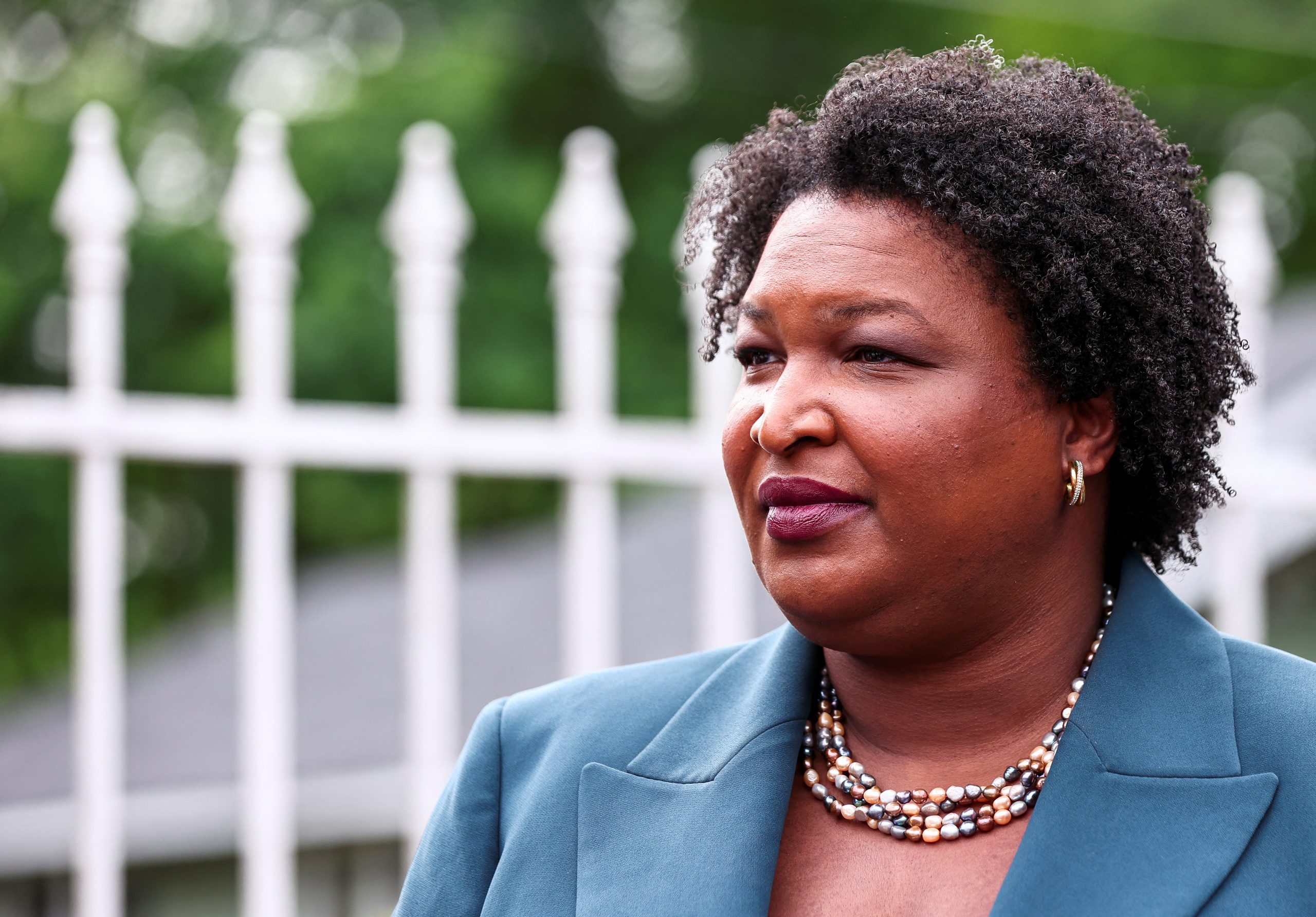
Chris Lieberman, FISM News
[elfsight_social_share_buttons id=”1″]
After months of Democrats claiming that Georgia’s new election security law would restrict voting rights in the state, Tuesday’s primary election saw record turnout, particularly in early in-person voting. However, this did not deter Democratic gubernatorial candidate Stacey Abrams from continuing to push the narrative that Republicans are attempting to suppress the vote in the Peach State.
According to Georgia Secretary of State Brad Raffensperger, over 857,000 voters cast their ballots during the 3-week early voting period, a significant increase from both the 326,000 votes cast in the 2020 presidential primaries and the 299,000 in the 2018 midterm primaries.
Yet despite the sharp increase in voter turnout, Abrams claims that voter suppression is still happening. “We know that increased turnout has nothing to do with suppression,” she told reporters.
Democrat Stacey Abrams on Georgia's skyrocketing turnout: "We know that increased turnout has nothing to do with suppression" pic.twitter.com/MzTnwNY7KK
— RNC Research (@RNCResearch) May 24, 2022
Georgia’s Election Integrity Act, signed into law last year by Gov. Brian Kemp (R) in the wake of the 2020 presidential election, limits the number of ballot drop boxes in the state, requires identification in order to vote using an absentee ballot, and prohibits third parties from handing out food or water to those waiting in line to vote, among other provisions.
Democrats were quick to pounce on the law, accusing Republicans of using the excuse of voter fraud in order to keep minorities, who often lean Democratic, from voting. After the bill’s passage, Abrams said at a Senate hearing, “There are components of [the law] that are indeed racist because they use racial animus as a means of targeting the behaviors of certain voters to eliminate their participant and limit their participation in elections.” President Biden even called the law “Jim Crow 2.0.” Georgia also faced backlash from major corporations such as Coca-Cola and Delta Airlines, and Major League Baseball even moved their annual All Star Game out of Atlanta.
However, according to the nonpartisan Center for Election Innovation and Research, Georgia has actually some of the least-restrictive voting laws in the country. The report found it more difficult to vote in blue states such as Connecticut, New Hampshire, New York, and even the president’s home state of Delaware. Massachusetts, home of Sen. Elizabeth Warren, another critic of Georgia’s voting law, allows only 11 days of early voting compared to Georgia’s 17.
Raffensperger saw vindication for the new law in the voter turnout numbers, saying, “Abrams and President Biden lied to the people of Georgia and the country for political gain. From day one, I said that Georgia’s election law balanced security and access, and the facts have proved me right.”
Republican Sen. Joni Ernst (Iowa) also blasted Abrams, saying on Fox News’ the Faulkner Focus, “Stacey Abrams has this all wrong. When you’re saying there’s voter suppression and yet we see increases year over year of voter turnout, she is promoting the big lie out there that we are trying to suppress votes all across the United States by making sure that our elections are secure.”
With Kemp and Abrams both securing their respective parties’ nomination for governor on Tuesday, the two are now set for a rematch of the 2018 gubernatorial election, which Kemp won with 50.2% of the votes to Abrams’ 48.8%. Notably, Abrams refused to call her acknowledgment of defeat after that contest a concession and claimed that widespread voter suppression was to blame for her loss by only 55,000 votes.
